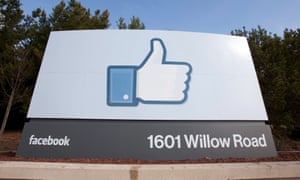
One basic truth is stark enough as newsrooms around Britain – and around the world – contract or close. The advertising money that used to underpin journalism isn’t there any longer. It is going, going, gone … into the maw of the internet in general, but Facebook and Google in particular. And without that revenue, journalism itself is at risk.
Two expert writers in the current Stanford Social Innovation Review sum up the whole problem of the last 20 media years in a single paragraph: “1) A radically diminished funding base for print media, 2) increasingly fragmented audiences, 3) an accelerating pattern of random and instantaneous digital dissemination of information, 4) video’s increasing displacement of the written and spoken word, and 5) diminishing amounts and lower quality of civic education, and related declines in knowledge of public affairs.”
Individually, say Bruce Sievers and Patrice Schneider, “these trends are problematic; together they pose a severe threat to democracy”. They are, among other things, the barren, shifting sands where only fake news grows.
So what’s to be done? Those two little words “civic education” aren’t there by accident. Sievers and Schneider, drawing on the lessons of a major brainstorming meeting in Turin, want journalism to be considered just as important as education or science, when it comes to foundation money.
It’s nowhere near that yet. They quote one recent estimate that the current level of US philanthropic support for the news media stands at $150m a year. “Simply increasing the amount contributed to the support of news media to 1% of total US giving would generate __more than $3.7bn.”
And what about a newsroom variant on the old principle that the polluter pays? Here’s Professor Emily Bell, head of the Tow Center at Columbia and a Scott trustee, taking on Zuckerberg et al: “America needs a radical new market intervention, similar to that made by the UK government in 1922, when it issued a Royal Charter and established the BBC. Remaking independent journalism requires funding that is independent of individuals or corporations, has a long time horizon built into it, and offers complete independence and as much stability as possible”.
Assorted wheezes to counter fake news don’t wash: “If, instead of scrapping over news initiatives, the four or five leading technology companies could donate $1bn in endowment each for a new type of engine for independent journalism, it would be __more significant a contribution than a thousand scattered initiatives put together.”
Now, both the Stanford and Bell approaches arrive with a deal of hard pounding attached. They both have careful thoughts on the ways and means of distributing such riches, if and when they arrive. But perhaps, for the moment, it’s best to register big ideas rather than detail – and prudent to ponder other ways of raising the missing revenue currently being tried.
In Britain, there’s the Times with its solid paywall, the Telegraph with a phased wall, offering some free and some paid “premium” access. There’s the Mail, still free but with a new chief exec thinking about “monetisation” of its huge online readership, and the Guardian, recruiting members (now over 200,000 of them) who’ll pay to sustain something they value. There’s the BBC, with its £8m a year of licence fee money to cover courts and councils for local papers. And there are notions about how to provide access to a variety of news outlets and, emerging from left field, the concept of some new body (cf the WHSmith of old) that handles subscriptions across the piste.

And in America – and Europe – the options are just as various: a cacophony of rising and falling paywalls, an ongoing ownership debate (from Jeff Bezos’s bulldozing Washington Post to the walled garden of the New York Times), a constant exploration of language and demographic hooks that may help discover cash streams. Plus that $150m or so backing investigative outfits in the ProPublica bracket.
Some of these approaches show promise – even tentative results. Some change and change again. Some clearly only fit the particular needs of a particular publication. However, the bottom line is that there is no magic button a struggling industry can push – which, in turn, produces two results.
One, pretty negatively, is a general sense of resignation, of forces bigger than any of us and of inevitable decline. So the order of the day is cost-cutting, an effort to balance delayed ends against shrinking means. It’s a grinding business. Another, much more interestingly, is jettisoning one of the most hallowed aspects of newspaper wars stretching back over a century. Co-operation in the face of a common enemy, not competition.
So, it’s here that the ideas of Emily Bell and the Stanford Two begin to gain traction. Nobody would rationally think of pouring billions into a pot of celebrity gossip and sports reporting. Nobody will easily want to divert charitable millions to shoring up the Sun, Mail or New York Post. But it ought not to be beyond the wit of a chastened press to devise more subtle and helpful ways of using the occasional billion for obviously good purpose (for instance, as investment pools: one Stanford suggestion). And never lose track of the bigger picture.
Facebook, Google and the rest need news. It’s a staple of their clicking trade. If they kill the news sources we have, they will have to find ways of replacing them. Self-interest all round. Which is precisely where this debate is heading.
•“Fit and proper” ownership? “Editorial standards” kept intact by Fox? News “plurality” maintained? The fact is Karen Bradley, our culture secretary, has given Ofcom every subject heading (and thus every possibility) for ruling against the Murdoch bid for Sky. A prudent ministerial move, calculated to enthuse all advocates of tight broadcasting and press regulation.
But what if, as most now expect, Ofcom basically clears the deal? Then Bradley has a clean pair of hands – leaving the legions of the disappointed free to savage the regulator they were suppose to love. Welcome to the world of nifty gambits, in a very hot kitchen indeed.